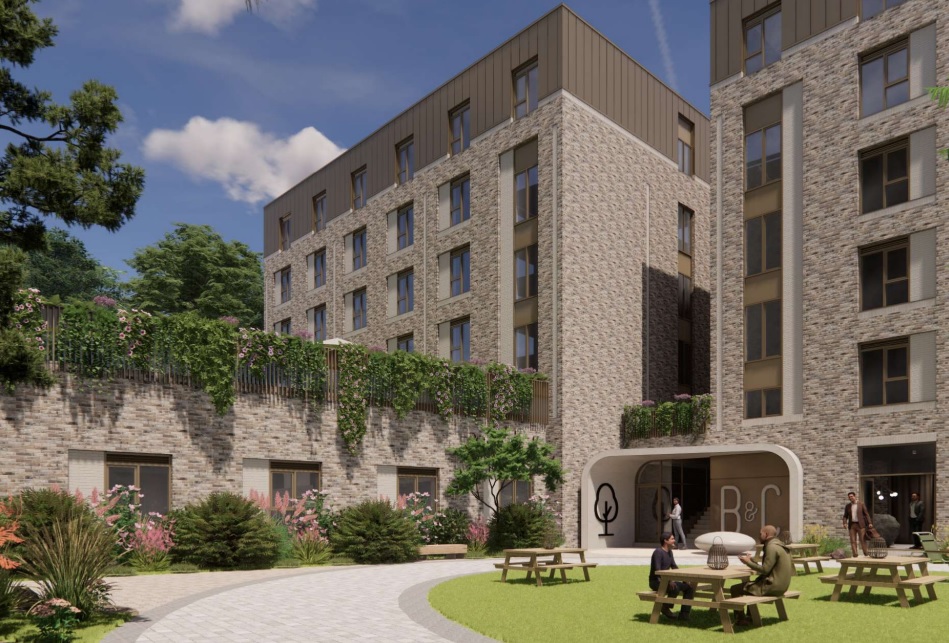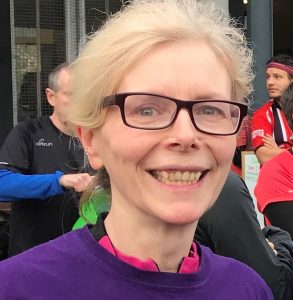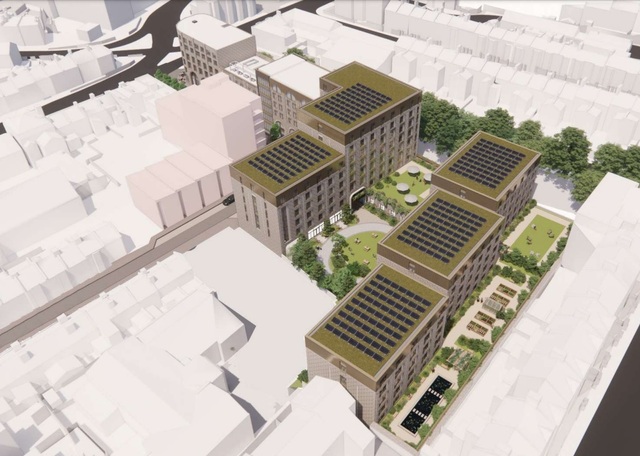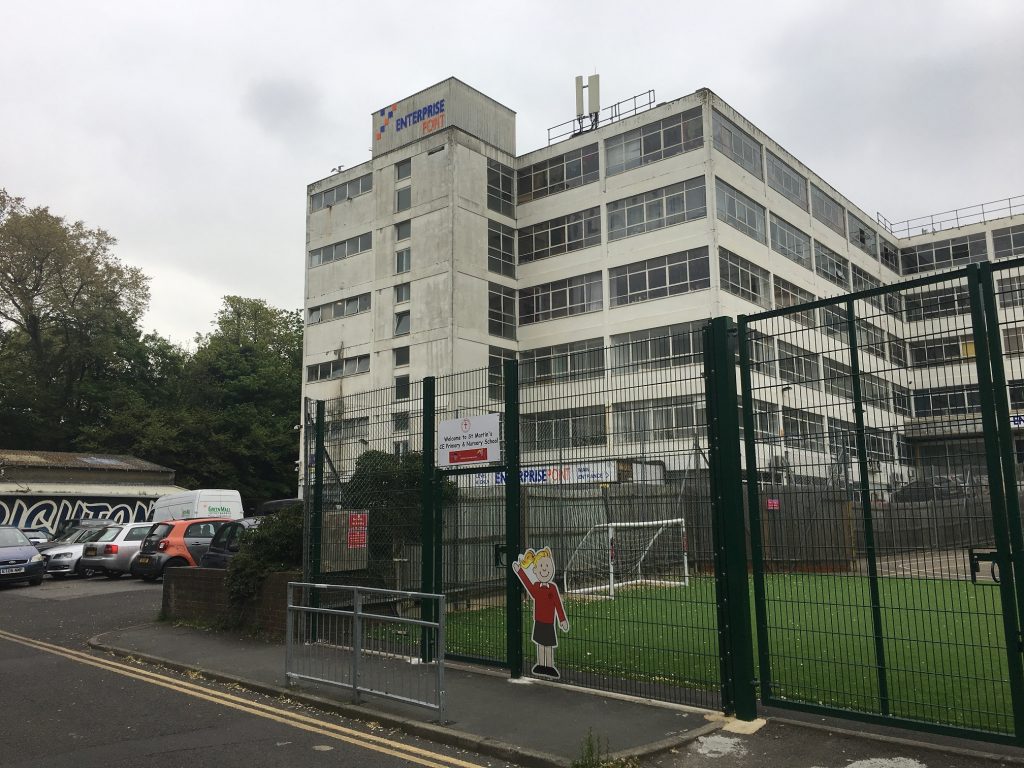Councillors have turned down plans to replace a dated and redundant Brighton office block with an eight-storey block of “co-living” flats with workspace.
A London company, Kosy Co-Living, and Cross Stone Securities, from Crowborough, applied to Brighton and Hove City Council for planning permission to build 269 co-living studio flats aimed at young professionals.
Rents would include tenants’ utility bills and give them access to a laundry, gym, communal kitchens and living rooms.
The scheme would involve the demolition of offices at Enterprise Point as well as the neighbouring 16-18 Melbourne Street, in Brighton.
And the scheme would form part of a wider project to create a “co-living village” just off Lewes Road, with permission already granted for the site next door at 19-24 Melbourne Street.
But the council’s Planning Committee refused the application at Hove Town Hall yesterday (Wednesday 8 March) because it would be an overdevelopment and because of the height, bulk and impact on amenity.
Neighbours and councillors addressed the committee to set out their objections to the latest application.
Green councillor David Gibson, who represents Hanover and Elm Grove ward, which includes Melbourne Street, said that other developers were looking at the site and wanted to build “affordable” housing there.
In contrast, the co-living scheme did not include any affordable housing although the council’s planning policies aimed for up to 40 per cent of new homes in big schemes to be “affordable”.
If the plans were approved, the developer would be expected to pay a £2.5 million “commuted sum” towards the cost of affordable housing elsewhere in Brighton and Hove.
But this sum would come nowhere near to funding the equivalent of 40 per cent, Councillor Gibson said.
He said: “Co-living to me seems like a substitute for student housing. It looks very much like student housing to me.
“It’s not what we need. We don’t have a proper policy on affordable housing on co-living so I’d rather this was refused.”

Green councillor Elaine Hills, who also represents Hanover and Elm Grove, also set out her objections to the Planning Committee.
She said that she was not against the principle of redeveloping the site but was concerned about the large number of people moving into the area.
Councillor Hills said: “The majority of the population would be transient because of the nature of the co-living accommodation. It’s not very community-led.
“The height is also a concern. The current building is five storeys and the proposed building is eight storeys and that will impact the light for many of the properties in Melbourne Street and Shanklin Street.”
Melbourne Street resident Holly Beeston said that the building would “completely destroy” the community along the road.

She said: “Brighton has become oversaturated with student accommodation in recent years and this area has just got far too many student homes. This is just another name for student accommodation.
“How can this tiny one-way street with a primary school cope with thousands of residents, deliveries, takeaways, taxis and Amazon drivers? It will endanger the residents of this street and the primary school children, especially at 3.30pm and drop-off.”
Another neighbour, Mike Evans, said that the flexibility of the business model left him concerned that the flats could be used as short-term holiday lets.
He said: “The developers can’t guarantee anything. They’re going to need to get their investment back. They will need full occupancy.
“What are they going to do if they don’t? Are they going to change their business model? They can’t stop students renting there because they need to fill space.”
Kosy Co-Living’s agent Robert Shaw said that the first phase of the project, at 19-24 Melbourne Street, already had planning permission.

Mr Shaw said: “This second phase will create a village that offers affordable city-centre living for those priced out of the traditional housing market.
“It makes effective use of a highly sustainable site, where residents can walk, cycle or take public transport rather than owning a car.”
Mr Shaw said that the housing was aimed at young professionals on 12-month contracts – not students who would not be able to live there.
Labour councillor Daniel Yates said that co-living was not new and there was a great deal of it in the form of houses in multiple occupation (HMOs), with young professionals sharing houses.
His concerns included the limits on who could live at the site, with children and students to be barred, potentially creating a “ghetto” rather than a diverse community.

Councillor Yates said: “We have residents who are concerned this could turn into a very large purpose-built student accommodation if it is not managed correctly and if we don’t control it.
“The fact they’re including council tax in the rent, which they may or may not be able to do, if that’s what they’re intending, that will create a disincentive to students who will seek other accommodation in the city.”
Green councillor Marianna Ebel also voted against the application. She said: “I am concerned about the huge amount of co-living in the area and the impact on the neighbouring properties.
“It might be an affordable way of getting your own space but the price of £1,440 a month is not affordable. I couldn’t pay that. I’d rather live in a usual flat share.”
Conservative councillor Carol Theobald and Independent councillor Tony Janio voted to approve the application.

Councillor Janio said: “We read about how great we are with highly educated people in the city but if people graduate and there’s nowhere for them to live then they will go elsewhere.
“To me, it is better to have a place like this rather than trying to fight for digs and houses up in Moulsecoomb or Coldean. I think this will alleviate a lot of problems.”







Of course the Greens turned it down!
It wasn’t student flats for the Greens natural supporters!
Councillor Gibson said: “Co-living to me seems like a substitute for student housing. It looks very much like student housing to me. It’s not what we need. We don’t have a proper policy on affordable housing on co-living so I’d rather this was refused.
Green councillor Elaine Hills said that she was not against the principle of redeveloping the site but was concerned about the large number of people moving into the area. Councillor Hills said: “The majority of the population would be transient because of the nature of the co-living accommodation. It’s not very community-led.
Strange that none of these councillors raised any objections to the massive, out of scale, ugly mass student housing towers going up all down the Lewes Road…
Good. You can’t state affording housing if your plan has no affordable housing. That is what is commonly known as a lie.